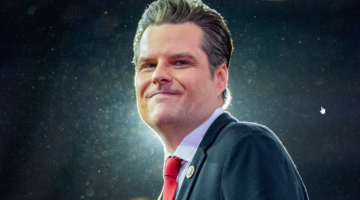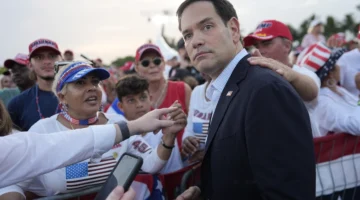Retired general hoping to restore trust in Wounded Warrior
By DAVID BAUERLEIN
JACKSONVILLE, Fla. (AP) – Retired Maj. Gen. Charles Fletcher’s military career brought him to Jacksonville to help manage a global network for moving military equipment to hot spots and bases. He’s back now on a new mission with a military angle, but his task is harder to quantify.
The Wounded Warrior Project’s board picked Fletcher to step in as interim chief operating officer so he would – in the words of the board chairman – “restore trust” in the Jacksonville-based charity after scathing news reports highlighted criticism of how it spends its donors’ money. Fletcher, 66, said he didn’t expect the assignment, but he quickly accepted.
“I spent 40 years in uniform,” he said. “I come from an Army family. My father was wounded in World War II. My grandfather was wounded in World War I. I’ve had a Fletcher in every war that this country has fought.”
He started work April 11 at the organization’s Jacksonville headquarters, which had been void of top executives since the Wounded Warrior board ousted CEO Steve Nardizzi and former COO Al Giordano on March 10.
Donors’ trust in an organization is closely tied to its ability to raise money. On that score, Wounded Warrior’s annual revenue shot up from $18.6 million in fiscal 2007 to $342 million in 2014, the most recent year for which financial reports are available.
Board Chairman Anthony Odierno told The New York Times a month ago that donations had fallen in wake of news coverage in late January, but he did not say by how much.
Fletcher said at this point, his immediate focus is on the spending side of the equation.
He said Wounded Warrior has a dedicated workforce that kept programs on track for the thousands of veterans who use the nonprofit’s free services.
“There’s no issue with them as to who we are, what we do, and how important it is,” he said. “But I think rightfully the donor community, when you read those (news) reports, you say, ‘Well, I have an option and is this the option I should choose?’ That means we have to ensure that we deserve their trust and confidence and that we’ve earned it.”
He said the “bottom-up review” is examining how Wounded Warrior spends its money, whether it’s the most efficient way to accomplish a goal, and whether it sends the “right message” in terms of public perception.
Before Fletcher became COO, the organization canceled this year’s “all-hands” conference, an annual gathering of hundreds of Wounded Warrior employees from around the country. The 2014 conference at The Broadmoor, a five-star resort in Colorado, played heavily in recent media coverage of Wounded Warrior, including video of Nardizzi rappelling down the side of a building to kick off the conference.
Nardizzi has said in hindsight, he wouldn’t have had the conference at The Broadmoor. He said the hotel provided discounted rates and the rappelling was just a few minutes of a multiday conference focused on strategic planning, but the event was misportrayed as a social gathering for employees.
Fletcher said he has been meeting with employees and asking them to identify ways to foster a strong workplace culture without spending money. He said one employee told him “the best thing in our culture is the Halloween party. We pay for our own costumes but we come here and everybody has a great time. I said, ‘We’ll probably keep that one.'”
Fletcher said the review also is examining the 20 programs managed by Wounded Warrior to see whether other nonprofits are filling those needs. If they are, Wounded Warrior will look for ways to partner with them.
Wounded Warrior is in the midst of a CEO search. Fletcher, who joined Wounded Warrior’s advisory board in December, said he accepted the job of interim COO with the idea that he would work a few months and then move on. He commutes from Washington, D.C., where he lives with his wife.
He said the job has deepened his understanding of the toll that war takes on those who fight it. When he was in the military, he oversaw the air transportation system that brought the wounded to specialty hospitals. He said advances in medical care saved lives that would have been lost in previous wars, but the nature of the wounds is long-lasting.
On his third day as COO, he went on one of Wounded Warrior’s Soldier Rides, which bring veterans together for multiday bicycle rides. He met a veteran who planned to go to the University of Southern California and study nursing. “I asked him, ‘Why nursing?'” He said, ‘I’ve spent so much time in hospitals that I’ve gained a real respect for what they do.'”
Fletcher said helping those veterans remains the ultimate mission for Wounded Warrior Project.
“I told my wife I’m never going to complain about anything again,” he said. “Here’s a guy who has lost limbs, been in the hospital, lost the dreams for who he was and what he was going to do, and he’s excited about the next phase of his life.”
[livemarket market_name="KONK Life LiveMarket" limit=3 category=“” show_signup=0 show_more=0]





No Comment